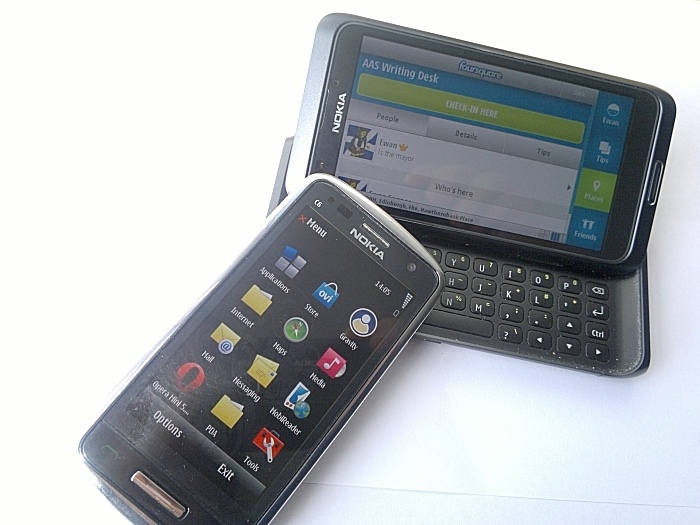
Is there an easy way to choose?
Here’s an application I’d love to see – one that sits in the background and records which applications you use in a normal day. It would record those you open, those you actually use (as opposed to staying in the background), those that are closed after ten seconds of not being used, and by a process of elimination, would leave you with a list of applications that you don’t use.
Because I think a list like this would open the eyes of a lot of people. While you might be sure in your own mind what apps you use, I suspect the truth might not be a perfect mirror of your expectations.
For me, this list is important, because when I start comparing phones that I want to use in day to day life, I want a phone that does what I need it to do, not what I think I want it to do. Steve’s updated his phone grid since before we could install third party applications on our phones (probably), and apart from the bias that Steve could bring in with his own weightings, the perceptions of what you think you want in your smartphone might not be what you actually use... Wouldn’t it be interesting to have an application that sat on your smartphone (no matter the OS flavour) that looked over what you were actually doing and used that for some of the scoring in the phone grid? Wouldn’t that be more accurate?
Hence the question, what do you use your phone for?
There’s a tendency, as the latest smartphones head out into the world, to grab the spec sheets and do a point by point comparison, highlighting the best on each side in a nice table. To a certain extent that answers the question of which is the stronger device, but isn’t a better question one where you ask if a phone is suitable for you?

The practical and emotional choices, side by side
And to do that you need a clear view of what you actually use your phone for. You might think that you have a gaming machine in your pocket and focus on that when looking for a new handset; but if the reality is that you’re only using the free version of Angry Birds twice a week, and the SMS client twice an hour then you’re not necessarily going to choose the phone that’s the best fit for you.
This is one of the reasons that I love the real world tests that I do while travelling – the recent review of the Nokia E7 in the wild, over a period of two weeks, pretty much secured the E7 to my pocket. If you’d asked me at the start of the trip, after having set up the E7 and checked it around the office for the two days before I left, I would not have rated the E7’s chances of being my main phone handing into May.
And then there is the issue of emotion. We all know that everyone has their own opinions on what a smartphone should do, but that’s my point. If you were to remove the emotional connection, would our smartphone Swiss Army Knife needs be better serviced by the Victorinox knife, or the Wenger knife? They’re both knives, but they each has subtle differences in the models and how they can be used.
Symbian supporters are all probably going to have to make a choice in the next year or so as to their device of choice for the future. There will be some that will stick with the platform as long as possible, because it works for them and who cares about fashion. Others will look to move to another platform because the manufacturer has jumped that way, others still will want to go for something that they feel will suit them better.
Hopefully when you sit down to decide which phone is for you, you’re asking what works for you, not what the marketing team of each device want you to think.
-- Ewan Spence, April 2011.
